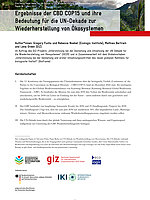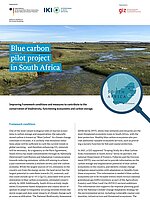Funding area: Conserving biological diversity
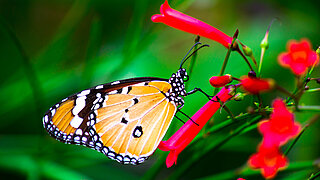
Biological diversity is fundamental to the functioning of ecosystems and its ecosystem services that are vital for the survival of the human race and life on earth. These services secure our food supplies, regulate water resources and give us clean air to breathe. Nature helps us to reduce climate change and protects us from natural disasters such as flooding and landslides.
Biological diversity is also the basis for our health and wellbeing. Intact ecosystems not only have healing and recuperative properties: but are also a basic requirement for preventing the spread of zoonotic diseases such as Covid-19 by offering habitats and sanctuaries, and act as natural ‘crash barriers’ between humans and animals, so as to minimise the transmission of pathogenic organisms.
The conservation of biological diversity must therefore be a top priority for humankind. The conservation of nature and wildlife is an integral part of climate action. At the international level, the German government is working with other nations on solutions to this critical challenge, and is also a co-signatory to the UN Convention on Biological Diversity (CBD) and Agenda 2030, with its 17 ambitious Sustainable Development Goals (SDGs).
Published in May 2019, the global report from the Intergovernmental Science-Policy Platform on Biodiversity and Ecosystem Services (IPBES) on the state of biological diversity and ecosystem services makes it very clear that greater levels of commitment and implementation are needed in order to counter losses in biodiversity. With the new Kunming-Montreal Global Biodiversity Framework (GBF), the international community has adopted an ambitious Framework, which builds on and replaces former targets (e.g. the ‘Aichi Biodiversity Targets’). The GBF was adopted during the fifteenth meeting of the CBD Conference of the Parties (COP 15) in 2022. The framework supports the achievement of the Sustainable Development Goals and sets out an ambitious pathway to reach a global vision of a world living in harmony with nature by 2050. Key targets to be reached by 2030 include placing at least 30 percent of the world's land and marine area under protection with recognition of indigenous and ancestral traditional territories and halting and reversing the trend of biodiversity loss.To support and guide the framework’s implementation, a comprehensive package of decisions was also adopted at COP 15.
IKI's approaches to conserving biodiversity
The International Climate Initiative (IKI) is an important element of the German government contribution to the international financing of climate change mitigation and biodiversity conservation. Since 2011, the conservation of biodiversity has been a separate funding area within the IKI. Biodiversity is more vital in other funding areas than just as a cross-cutting issue, and this is reflected in many of the projects in these areas, that are also contributing to conservation efforts.
By providing investments, advice to governments, technology transfer and research partnerships, the IKI projects improve the abilities of both governments and civil society to implement the CBD in partner countries. A particular focus for this support is the drafting and implementation of national biodiversity strategies and action plans (NBSAPs). In this work, knowledge sharing as well as raising awareness and the participation of key actors often play a part in the effective and sustainable/long-term conservation of biological diversity.
Other focal points for the funding area include the conservation, expansion and connection of protected areas, the sustainable use of ecosystems, and reductions to the degradation, fragmentation and valuation of ecosystems. The concept of ecosystem-based adaptation to the impacts of climate change as well as the principles behind sustainable methods of production, biodiversity-friendly agriculture and sustainable fishing make up some other important thematic areas. Urban biodiversity and the interactions between city and countryside and their mutual interdependencies, is also becoming increasingly significant.
At a glance
From 2008 to the end of 2023, 419 biodiversity-related projects with a total funding volume of about 1.9 billion euros were approved.
Selected projects
- Wetlands Management for Biodiversity and Climate Protection
- Mainstreaming biodiversity into food value chains
- Supporting the design and first implementation steps of the new global framework for biological diversity
- Transformative pathways: indigenous peoples and local communities leading and scaling up conservation and sustainable…
Committed to Biodiversity
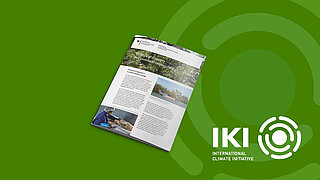
NBSAP Accelerator Partnership
The IKI was involved in the formation of the global partnership in 2022, with which it will make an important contribution to the implementation of the GBF goals in the partner countries by 2030.
About the IKI
Topics within the funding area "Biodiversity"
Biodiversity in the context of pandemics
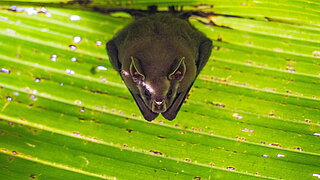
Valuation and mobilisation of financial resources

Protected areas and ecosystem services
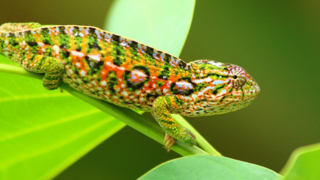
Marine and coastal biodiversity and coastal protection
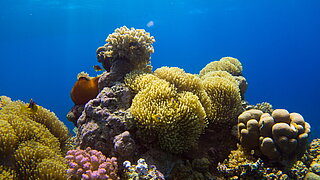
Sustainable agriculture and pollinator protection
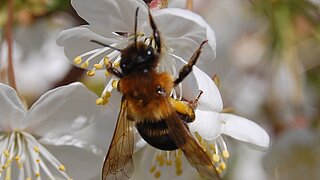
Biodiversity and climate action in the IKI
Cross-cutting topics of the IKI
Implementing NDCs

Sustainable Financing

Sustainable Urban Development

The link has been copied to the clipboard







